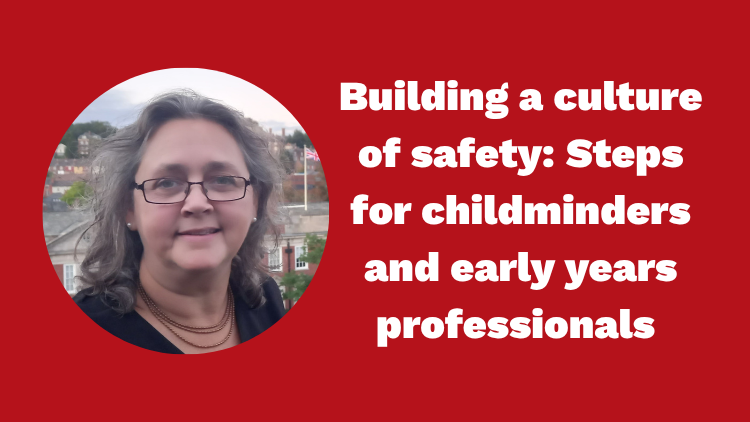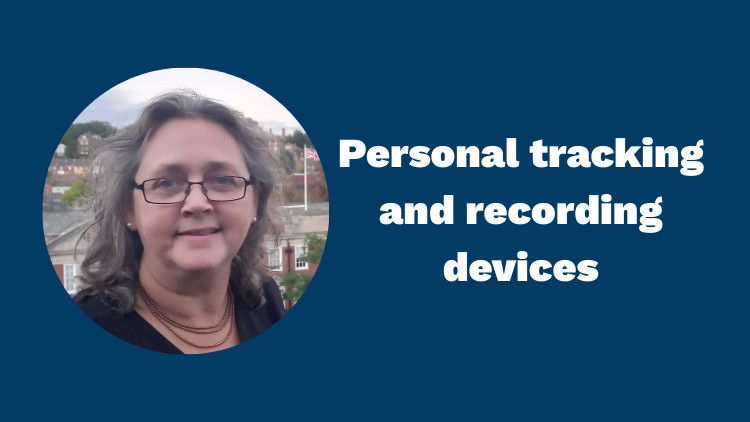Carmel Glassbrook, Project Lead for the Harmful Sexual Behaviour Support Service, SWGfL
The volume and nature of calls received by the Harmful Sexual Behaviour Support Service leads us to believe that the signs of potentially harmful sexual behaviour are not being identified early enough to enable effective intervention – whether that behaviour takes place at school, or wider settings including within a caregiver’s own home. Harmful sexual behaviour is any sexual behaviour expressed by children that is developmentally inappropriate, may be harmful towards themselves or others, or abusive towards another child or adult (Hackett 2014).
Knowing how to recognise and respond to the signs of harmful sexual behaviour in young children is particularly challenging. It can be difficult to distinguish between behaviours that are developmentally normal and those that are not. Tantrums, new routines, fussy eating, and sleeping problems can all be part of normal child development, but equally may be an indication of something else going on for the child. Some behaviours will be of obvious concern, but others will be less clear and if left unaddressed, could develop into something more serious.
Signs of harmful sexual behaviour in children
Below are some types of behaviour which are cause for concern, together with advice on action to take in response. In all cases it is recommended expert advice is sought at the earliest opportunity.
Pulling other children’s trousers and pants down, or skirts up
If you are seeing displays of this type of behaviour, talk with all children involved. Establishing why this is happening, and understanding the context behind the behaviour, will help you determine if the act is harmful sexual behaviour or an issue of mis-judged, non-sexual inappropriate behaviour that is infrequent. If it is inappropriate behaviour rather than harmful sexual behaviour, it should be dealt with it as a behavioural issue. It is important to make sure that other child(ren) who have been impacted by the behaviour are supported appropriately.
Talking about sex using adult slang
Harmful language can sometimes be a result of influences from within the child’s home, school environment, social networks, or other activities – and on occasions can be indicative of abuse. In younger children, using sexualised language that is above their age and understanding is particularly concerning. It is important to find an appropriate time and place away from other children to talk directly to the child about the language they are using and why.
Following or leading others into ‘private’ spaces
If you notice children following others into more “private” areas such as bathrooms, to look at them or touch them, or if you become aware of children spending increased time alone together (especially if an older child has befriended a younger one), check in with them individually, to find out what is going on and monitor the situation carefully.
Repeated questions about sexual activity
It is normal for children to be inquisitive and to ask questions relating to sex and sexual behaviour. However, you should be concerned if a child persistently or frequently asks questions about sexual activity despite already being given an answer, or if they are asking questions above their age and understanding. In the event of repeated inappropriate questions, consider carefully investigating further by asking questions about why the child wants to know and why they might be asking. This could lead to insights into the cause and clarify whether concerns should be investigated reported further.
Disclosure of sexual assault
If a child has chosen to tell you about inappropriate or abusive sexual behaviour towards them by another child or by an adult, you should respond immediately – following your settings child protection guidelines, including, where necessary, reporting it to the police. Ensure the child understands that telling you what is worrying them won’t get them into any trouble and reassure them that they are not to blame for anything that has happened to them, whether it be at home, school, or somewhere else. Record the detail of the disclosure as soon as possible.
It is important to remember your responsibility to safeguard children and report any concerns to your local authority social care department, and if a child is in immediate danger call the police.
How to access support
The Harmful Sexual Behaviour Support Service
If you believe a child may be displaying harmful or inappropriate sexual behaviour, you can access support, advice and relevant resources through the Harmful Sexual Behaviour Support Service. The service is available for anyone in England working with children and young people and is contactable on 0344 225 0623 or at hsbsupport@swgfl.org.uk.
The Harmful Sexual Behaviour Support Service, launched by SWGfL in partnership with the Marie Collins Foundation, is due to come to an end on 28 October 2022. In the 10 months of operation, the support service has provided support to over 600 individual cases, and we encourage professionals working with children and young people who may encounter harmful sexual behaviour to continue engaging with the service until end of October.
We understand that the Government will be using the learning from this pilot to inform future policy developments in tackling harmful sexual behaviour in children and young people.
External support
- The NSPCC has information about the stages of typical sexual development and behaviour in children.
- If you’re worried about a child, even if you’re unsure, you can contact NSPCC professional counsellors for help, advice and support: Call 0808 800 5000 or email help@nspcc.org.uk
- Advice for parents on healthy and unhealthy sexual behaviour in children and teenagers.
- How to talk to children about sexual anatomy: Famly blog featuring insight from Anne Gallagher, Practice Advisor at PACEY.
PACEY resources
- Spotlight on Safeguarding
- PACEY Safeguarding Children course
- PACEY Live webinar: Sexual harassment & online sexual abuse of children & young people. The stark reality. We spoke to Michelle Dougan from Barnardo’s and explored the difficult subject of sexual harassment and abuse, the prevalence of it and how we can take steps to prevent children and young people suffering. PACEY members can watch the webinar in MyPACEY now.



